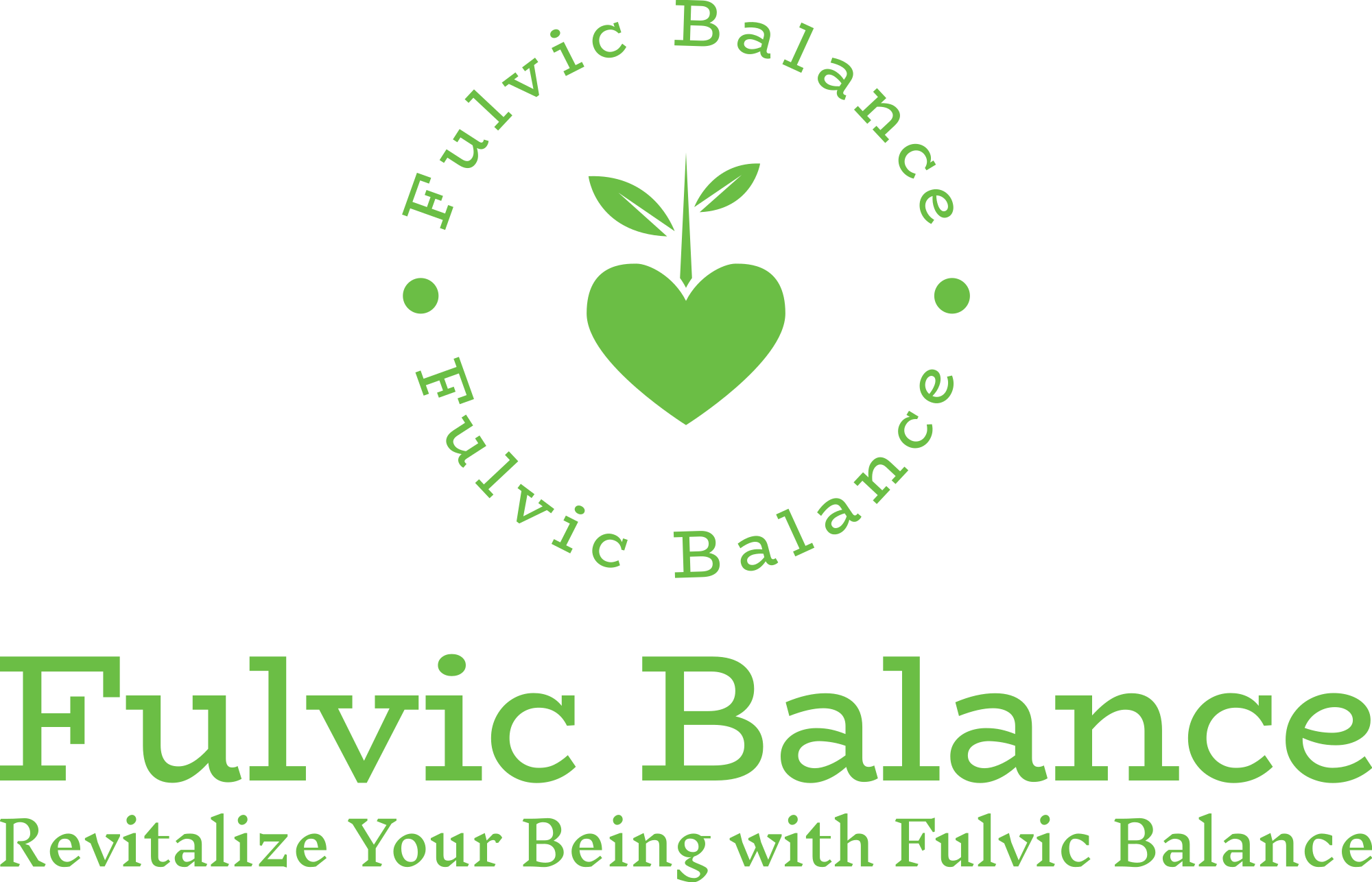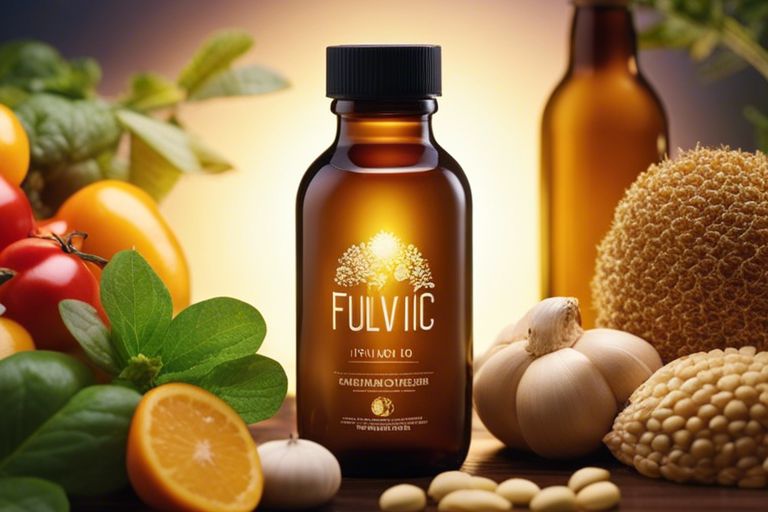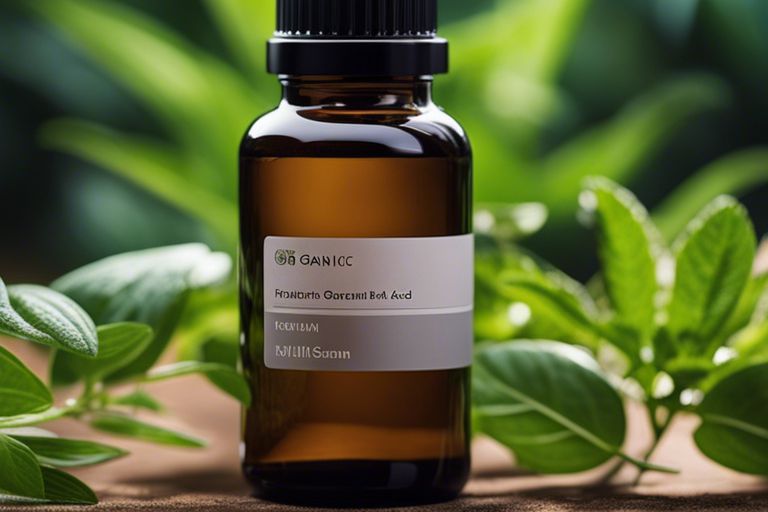Being a powerful and beneficial organic compound, Fulvic acid is known for its diverse range of health benefits. Derived from decomposed organic plant matter, fulvic acid is a potent antioxidant and has been linked to several important health outcomes. It has been found to aid in nutrient absorption, improve digestion, promote detoxification, and boost overall immune system function. In addition, fulvic acid has been shown to reduce inflammation, improve cognitive function, and enhance energy levels. Moreover, its ability to chelate heavy metals and toxins from the body make it a crucial element for promoting overall health and well-being.
The Science Behind Fulvic Acid
Your quest for a deeper understanding of fulvic acid has brought you to the right place. It’s time to delve into the scientific intricacies of this powerful substance and understand the mechanisms that make it so beneficial for our health.
Chemical Composition
Acid just sounds intimidating, doesn’t it? But when it comes to fulvic acid, there’s more to it than meets the eye. Fulvic acid is a complex mixture of large and small molecules, including aromatic and aliphatic organic acids, amino acids, and trace minerals. Its unique structure and composition contribute to its remarkable properties and versatility.
In addition, fulvic acid contains fulvates and humates, which are crucial for its ability to transport nutrients into plant and animal cells efficiently. The presence of these compounds enhances its bioavailability and effectiveness, making it a standout player in the world of natural health.
How Fulvic Acid Works in the Body
An exploration of how fulvic acid interacts with the human body reveals a fascinating interplay between this substance and our cellular functions. Through its small molecular size and unique structure, fulvic acid is able to easily penetrate cell membranes, delivering essential nutrients and removing harmful toxins. Once inside the cells, it enhances the absorption of nutrients and facilitates enzymatic reactions, promoting overall health and well-being.
For instance, fulvic acid can chelate heavy metals, fight inflammation, and scavenge free radicals due to its potent antioxidant properties. These actions contribute to its reputation as a powerful detoxifier and a supporter of immune function, making it a valuable ally in maintaining optimal health.

Health Benefits of Fulvic Acid
Some researchers and health experts believe that fulvic acid can provide a wide range of health benefits due to its unique properties. From enhancing nutrient absorption to supporting the immune system and providing antioxidant properties, this powerful substance has the potential to improve overall health in various ways.
Enhancement of Nutrient Absorption
One of the key health benefits of fulvic acid is its ability to enhance nutrient absorption in the body. Fulvic acid can help improve the bioavailability of essential vitamins and minerals, allowing the body to utilize these nutrients more effectively. This can lead to better overall health and wellness, as the body is able to benefit more fully from the nutrients it receives.
Immune System Support
Acid In addition to enhancing nutrient absorption, fulvic acid is also believed to support the immune system. Research suggests that fulvic acid may help enhance the body’s natural defenses and promote immune function. This can be particularly beneficial for individuals seeking to boost their immunity and protect themselves from illness and disease.
Any discussion of the health benefits of fulvic acid must include its potential to support the immune system and improve overall health. With its immune-boosting properties, fulvic acid has the potential to benefit individuals looking to enhance their immunity and protect themselves from illness and disease more effectively.
Antioxidant Properties and Detoxification
On top of its immune-boosting and nutrient absorption benefits, fulvic acid is also known for its antioxidant properties and detoxification effects. Fulvic acid can act as a powerful antioxidant, helping to neutralize harmful free radicals in the body. Additionally, it may assist in detoxifying the body by removing toxins and heavy metals, promoting overall health and well-being.
The antioxidant properties and detoxification effects of fulvic acid can be significant for individuals looking to protect against oxidative stress and support their body’s natural detoxification processes. Incorporating fulvic acid into a health and wellness routine can potentially lead to improved overall health and wellness by combating free radicals and eliminating toxins.
Practical Applications
Not only is fulvic acid beneficial for agricultural uses, but it also has practical applications in dietary supplements and skin care and cosmetic products.
Agricultural Uses
Agricultural experts have found that fulvic acid can improve soil structure, increase nutrient uptake in plants, and enhance seed germination. It also helps to detoxify pollutants in the soil, making it a valuable tool for sustainable farming practices.
Dietary Supplements
Supplements containing fulvic acid are becoming increasingly popular due to their potential to support overall health and wellness. Practical uses include enhancing nutrient absorption, promoting detoxification, and supporting a healthy immune system.
Fulvic acid has been shown to have antioxidant properties and may help with the body’s natural detoxification process, making it a desirable addition to dietary supplement regimens.
Skin Care and Cosmetic Products
Applications of fulvic acid in skincare and cosmetic products are gaining attention for their ability to promote healthy, glowing skin. It is known for its positive effects on skin hydration, collagen production, and overall skin health.
Users of fulvic acid in skincare products have reported improvement in skin texture, reduction in blemishes, and a more radiant complexion. Its positive effects make it a sought-after ingredient in the beauty industry.
Potential Side Effects and Considerations
Unlike other supplements, fulvic acid is generally well-tolerated, but there are still some potential side effects and considerations to keep in mind.
It’s important to note that while fulvic acid is generally safe for most people, there have been some reports of mild digestive issues such as nausea, diarrhea, and stomach discomfort. However, these side effects are rare and typically occur only when taking extremely high doses of the supplement. Additionally, because fulvic acid can enhance the absorption of other substances, it’s important to be cautious when taking it with other medications or supplements to avoid potential interactions.
Recommended Dosages
Dosages for fulvic acid can vary depending on the specific product and concentration, but generally speaking, a typical dosage is around 200-600 milligrams per day.
As always, it’s best to start with the lowest effective dose and gradually increase as needed, under the guidance of a healthcare professional. It’s also important to note that individual tolerance and response to fulvic acid can vary, so it’s crucial to listen to your body and adjust your dosage accordingly.
Precautions and Interactions
For those who are pregnant, breastfeeding, or have any underlying medical conditions, it’s essential to consult with a healthcare professional before starting to take fulvic acid.
Any individuals who are taking medications, especially those with a narrow therapeutic window, should exercise caution when using fulvic acid, as it can potentially alter the absorption and effectiveness of these medications. Additionally, it’s important to be mindful of any potential interactions with other supplements or substances when taking fulvic acid.
Conclusion
So, what is fulvic acid good for? Fulvic acid is beneficial for a wide range of health and wellness needs. From improving nutrient absorption and promoting detoxification to boosting immune function and providing antioxidant support, fulvic acid offers a multitude of benefits. Additionally, its application in skincare has gained attention for its potential to support healthy aging and address various skin concerns. For more information on fulvic acid’s uses and benefits in skincare, you can refer to Fulvic acid skin care: Uses, benefits, and more.




